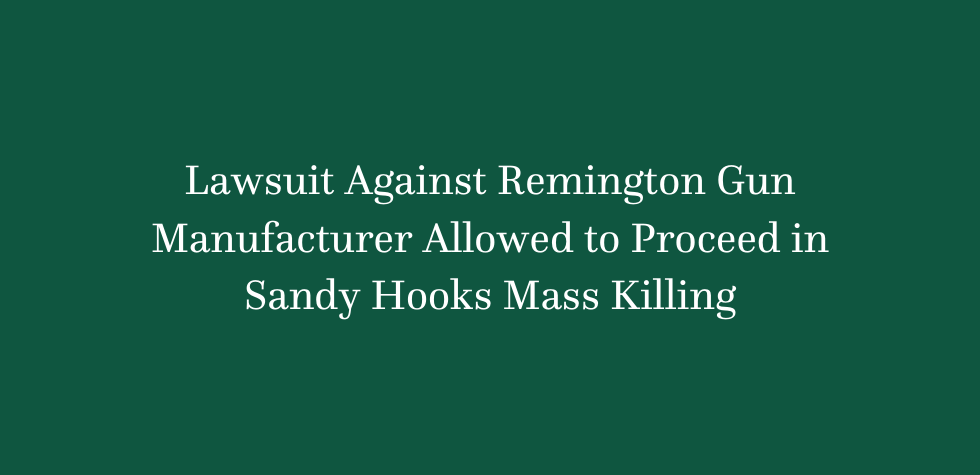The Supreme Court of the United States did not accept hearing an appeal on a lawsuit against Remington Arms Company, which means the case may proceed on behalf of the families of victims of the Sandy Hook school massacre in Connecticut.
The country’s highest court denied the gun maker’s appeal Nov. 12 without commenting on the case. That means that the decision of the Connecticut Supreme Court that allowed the Sandy Hook case to proceed stands. The gun manufacturer tried to appeal that decision to the federal level based on an argument that the case, “presents a nationally important question.”
Remington manufactured the Bushmaster AR-15-style rifle that Adam Lanza used on Dec. 14, 2012, when he killed 20 first-graders and six adults at the elementary school in Newtown, Connecticut. The action shocked the nation as millions mourned the senseless deaths.
Since then, mass shootings have become part of America’s daily life, and experts opine that the decision by the U.S. Supreme Court not to hear the case may open the way for others to sue gun manufacturers when similar military-style weapons are used by citizens to kill innocent people.
The families in Connecticut have alleged that Remington violated the state’s unfair trade practice when it, “knowingly marketed and promoted the Bushmaster XM15-E2S for use in assaults against human beings.” They say that the assault rifle never should have made its way into the hands of the public.
The case will now return to the trial level in Connecticut where it will proceed on the issue regarding how Remington marketed the gun. The 2005 federal law, Protection of Lawful Commerce in Arms Act, allows lawsuits against gunmakers or sellers who knowingly violate state or federal laws in how a product is sold or marketed. Remington promotional materials also promise, “military-proven performance,” for a shooter in need of the, “ultimate combat weapons system.”
It has been reported that one of the Remington ads for a gun carried the tagline, “Consider your man card reissued.” Families are questioning that type of marketing, particularly when these assault-type weapons are able to make it into the hands of teenagers and young adults.

